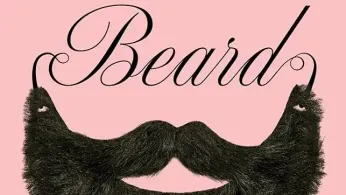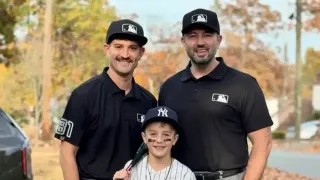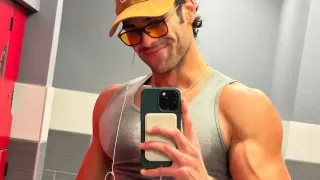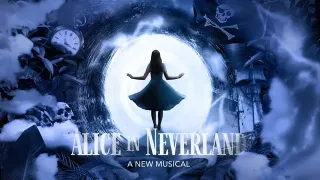
Nov 2
Out From Behind the Beards: Kelly Foster Lundquist’s Memoir Unmasks the Closet’s Collateral
READ TIME: 4 MIN.
The word “beard” evokes images of playful disguises and plausible deniability. But for generations of LGBTQ+ people, it’s a code word for something dead serious—a safety net, a performance, a costumed companion shielding someone from the glare of heteronormativity. In Kelly Foster Lundquist’s “Beard: A Memoir of a Marriage,” the role-reversal is as sharp as a freshly razored chin: what happens when the “beard” is mutual, and everyone’s hiding from themselves as much as the world?
Lundquist, now a Minnesota-based writer and teacher, peels back the layers of her five-year marriage to Devin, her first husband and, yes, a closeted gay man. Their saga begins at an evangelical Bible camp in Mississippi—a place more likely to pray the gay away than celebrate a rainbow flag. But this isn’t just Devin’s coming-out story. It’s Kelly’s, too: a straight woman whose own sense of belonging in a rigid faith community depended on keeping up appearances, even as she and her husband both knew—deep down—they were living a double life .
“In so many ways, I was the culmination of conversion therapy for him,” Lundquist confesses, not with blame, but with the kind of raw self-interrogation that sidesteps easy villains . Her memoir is less about who lied to whom, and more about the nuclear fallout of systems that “silence and shame and isolate us all.”
If you expect a tale of finger-pointing, think again. “Beard” is generous, gutsy, and—somehow—hilarious, even as it details the emotional whiplash of trying to fit into a world built for someone else’s fantasy. Lundquist writes with the immediacy of someone still living through the aftermath, capturing the absurdity of being the “beard” in her own life’s sitcom. “She is short (I’m 5′3″). She is plump (me too). She is sweet (usually). She is plain (as I sometimes feel). She is dumb (as I have often felt or been made to feel). Beards can be shaved, washed down a drain, swept with the meaty flesh of a palm into a bathroom garbage can. We exist to be cheated on,” she writes, lampooning the stereotypes that have haunted women like her in pop culture .
Her marriage to Devin played out against a backdrop of rainbow-tinged Chicago neighborhoods and a friend group that could have doubled as a season of “Queer as Folk.” But behind the laughs was a mounting sense of unease—a husband praying for change, suffering stress so intense he landed in the ER with chest pains before graduating high school, and a wife wondering if she was complicit in his pain .
What sets “Beard” apart is its refusal to make anyone the scapegoat. Lundquist looks hard at her own role in perpetuating damaging norms, recalling moments when she, desperate to “fix” things, suggested conversion therapy-esque websites to Devin—a move she now views with both regret and empathy . “My question is, what if I was the thing that was killing him?” she asks, holding space for the messy, contradictory realities so many in the LGBTQ+ community know all too well .
That empathy extends to her ex-husband, who spent years trying to pray away his orientation, enduring therapy, and living with stress-induced illness. “He’d been trying his whole life. He tried so hard he landed himself in the ER with chest pains three times before he even graduated high school. He tried so hard he’d gone to therapy for most of his adolescence. He tried so hard his entire abdomen had been filled with stress-induced shingles by the age of twenty-four. He’d prayed the prayers. He’d walked the aisles. He’d asked again and again and again to be changed, to be healed, to be redeemed,” she writes .
Lundquist’s memoir is as much a cultural critique as a confessional. She skewers the “beard” trope—think plain Jane paired with a dashing, obviously gay partner—and asks, “What does that make me?” . By centering her own story, she expands the conversation about who gets to “come out” and who gets left behind. Her perspective is especially timely for queer and questioning readers navigating intersecting pressures—from faith communities, families, and the relentless expectations of heteronormativity.
The present-tense immediacy of her writing invites the reader to experience the heartbreak and humor alongside her. She doesn’t shy away from the darker corners, detailing struggles with disordered eating and body dysmorphia, stark reminders of how oppression seeps into the body and mind .
Two decades after the post-Halloween drinks in Boystown that began the unraveling, Lundquist is still reflecting, still healing—and still learning. Now remarried and raising her daughter, she’s planning to mark the anniversary by dressing up as Judy Garland (herself a beard and a gay icon), alongside her daughter as Liza Minnelli, making a pilgrimage back to the neighborhood that launched her into a new life .
For LGBTQ+ readers, “Beard” offers more than catharsis—it’s a reminder that the cost of the closet is never paid by just one person. Lundquist’s willingness to interrogate her own complicity, to laugh and cry through the pain, and to keep loving through the mess, is a call for collective healing. As she writes, “It’s not just one person that’s impacted by it.”
For those still negotiating their own masks, or wondering if they’re the only ones swept up in the charade, Lundquist’s story lands like a balm: the truth may sting, but it also sets us free.






